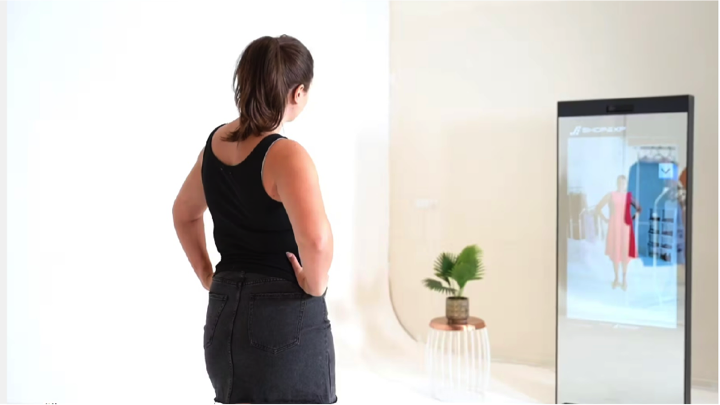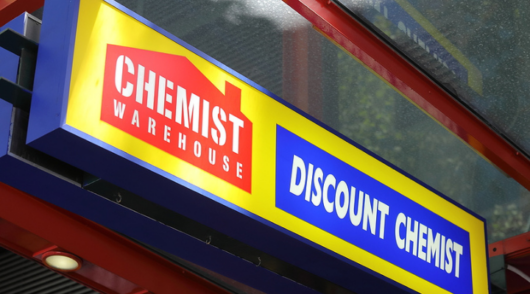When you think of party supply stores, high-tech isn’t the first thing that typically comes to mind. However, The Party People appears to be challenging this perception with its upcoming pilot project. The retailer, which last year acquired Mega Party Warehouse, is set to launch its augmented reality (AR) mirror next month, ahead of Halloween. Supported by sponsors including Uber, Lendlease, Starshipit, Stockinstore and Shopexp, the technology enables customers to virtually try on products and
and make purchases through a checkout option, with the choice of delivery or click and collect.
The Party People CEO Dean Salakas believes that this innovation has the potential to address challenges faced by many retailers. For instance, AR mirrors can make use of under-utilised and dead spaces – generating sales without requiring much floor space. It also leverages e-commerce fulfillment, reducing the need to keep significant amounts of inventory in-store.
Beyond this pilot, Salakas explained that the AR mirrors could potentially be promoted on shop windows and construction hoardings – which would enable consumers to browse and shop virtually, even when the store is closed.
While high-tech prospects with great promise tend to come and go in the retail sector, the trial is set to provide key insights into the potential and viability of AR mirrors.
Test case
This isn’t the first time that The Party People has experimented with shoppable AR mirrors.
A few years ago, the retailer introduced AR mirrors as a pop-up feature. However, at that time, it offered only a limited selection of costume options for virtual try-on and was presented more as a fun activation rather than a commercially viable option. Amid the Covid-19, Salakas said that the initiative was put on hold.
Salakas told Inside Retail that he had been considering how he could best use the AR technology, and was exploring ways to make it work. A significant hurdle was the forecasted cost of implementing this concept – about $150,000.
Following discussions, he said that sponsors were enthusiastic about how AR mirrors could be used, and were willing to financially back the shoppable screens. This, as something of a test case of take-up, and how the mirrors could be applied within their own business.
“The vision is for [the shoppable AR mirrors] to have a presence across major shopping centres. You don’t need extra stock or staff to run them and, in terms of scaling, it’s just about finding space for a few extra mirrors,” Salakas said.
Regarding how it works, users make selections by waving their hands and virtually touching the button they want to choose. Once they’ve picked a costume, the technology overlays it on their reflection. They can then wave their hand to choose a different costume, or virtually check out using a QR code, and enter their address for home delivery.
“[Another benefit] is that waiting for change rooms can take ages. These mirrors can alleviate that wait time,” he added.
Future iterations
According to Salakas, the stand-alone mirrors will be rolled out ahead of Halloween.
Beyond The Party People, he envisions a number of potential applications for this AR mirror-with-checkout technology. This includes using it as a pop-up, and as a way for online retailers to enter shopping centres, without needing a dedicated physical space with the overheads attached.
“I see it as another potential channel to generate sales,” he said.
And while The Party People isn’t the first brand to experiment with an AR try on feature, he believes that most retailers haven’t incorporated an option to make purchases through the technology. Salakas is also considering the next iteration.
Depending on potential capabilities, it could resemble a vending machine, with the costume coming out of the slot. For now, however, the costumes will be delivered to the user’s home address after purchase.
“We’re currently testing it and will [assess] customer feedback and results after its launch,” he said.
Expansion on the cards
Amid elevated cost of living pressures, Salakas is optimistic about the upcoming Halloween period. The Australian Retail Association has forecasted $490 million in sales for the event – up $60 million from 2022 – with an average of $93 spent per person.
Almost half of those surveyed said that they intend to purchase a costume for the event.
Salakas believes that the popularity of Halloween in Australia has surged over the last 20 years, and is now a mainstream event.
He added that The Party People is considering raising capital to support future growth opportunities, with more expansion on the cards.
This could potentially entail additional acquisitions.
“We’ve had conversations about potential targets, but it’s still very early days,” he said.







